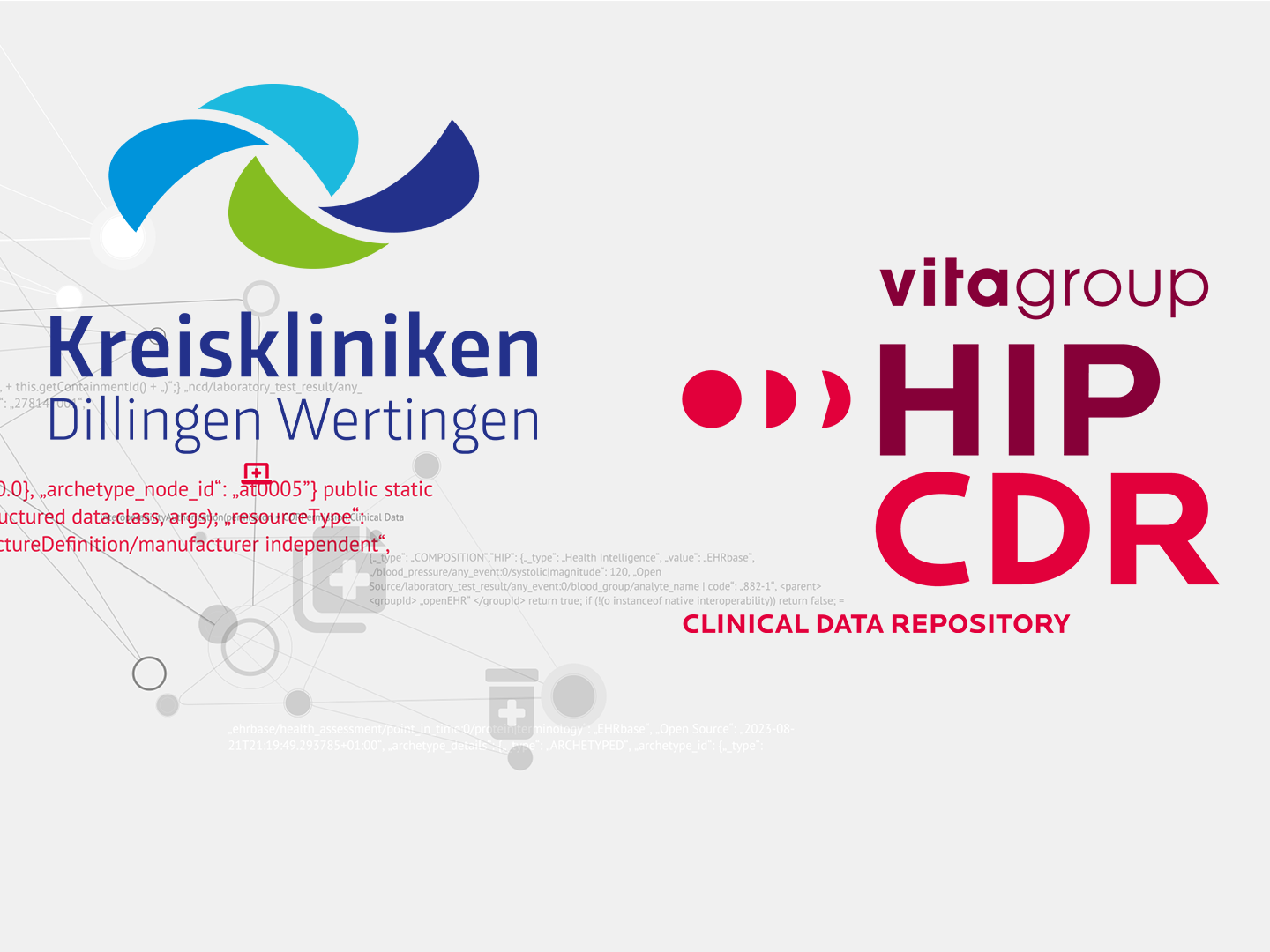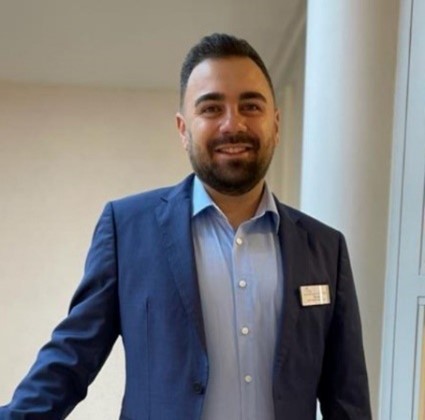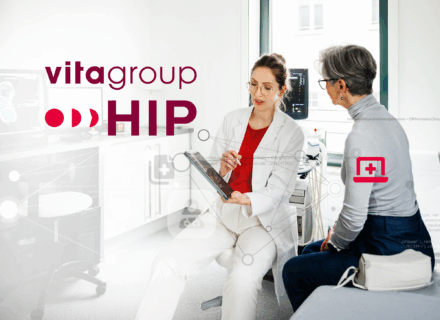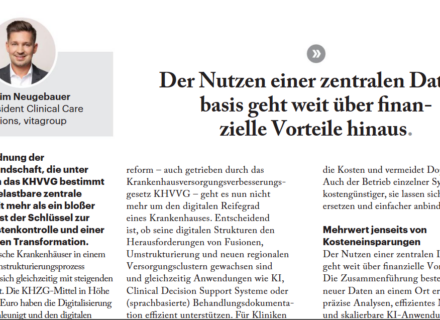Kreiskliniken Dillingen-Wertingen
Successful digitalisation with vitagroup’s HIP

The Kreiskliniken (district hospitals) Dillingen-Wertingen are among the pioneers of digitalisation in the German healthcare sector. As one of the first hospital groups in Germany, they now exploit the full potential of digitalisation. Because: They are using vitagroup’s Health Intelligence Platform (HIP).
Quick Facts
- Customer: Kreiskliniken Dillingen-Wertingen
- Locations: Kreisklinik St. Elisabeth, Dillingen und Kreisklinik Wertingen, Wertingen
- Owner: District of Dillingen
- Beds: 299
- Employees: < 900
- Our HIP in action since: 2024
There are already thousands of ways in which digitalisation can improve healthcare. And the number is growing every day. But they all depend on the availability of high-quality, structured healthcare data. Data are the building blocks that make clinical decision support, artificial intelligence in diagnostics and the automation of processes possible in the first place.
Like most clinics in Germany, the Dillingen-Wertingen district clinics were organised in a monolithic structure with their hospital information system (HIS). Data was stored in different, often incompatible systems – and was sometimes only available as a printout, image, or PDF, requiring manual entry. For patients and staff, this often meant duplicate data entry or delays in sharing information.

Our HIP has now been implemented in their facilities. Our HIP is the foundation of all our digitalisation projects. It breaks down data silos and stores data in a centralised and highly structured way. This makes it available to all other systems in an appropriate manner.
Timur Kaya
Kreiskliniken Dillingen-Wertingen
Structured health data available at any time
“Our HIP has now been implemented in their facilities. Our HIP is the foundation of all our digitalisation projects. It breaks down data silos and stores data in a centralised and highly structured way. This makes it available to all other systems in an appropriate manner”, says Timur Kaya, Head of the Digitalisation & IT Department at Kreiskliniken Dillingen-Wertingen.
best-of-breed: cost-effective use of the best digital tools
Our HIP enables the selection and integration of best-of-breed systems for each application, regardless of manufacturer. This is a necessity to be able to act economically and sustainably. This is the only way to ensure flexibility, room for manoeuvre and, above all, the ability to respond appropriately to price demands and increases from system suppliers. Another plus: expensive interface costs are avoided.
Valuable time well invested
Centralised data availability also avoids duplicate examinations, unnecessary tests and transcripts. Doctors can access all findings and data from any clinical system, speeding up processing and decision-making and freeing up time to spend on patient care. In the future, HIP will also bring many benefits for consultations and exchanges with other clinics.
Long-term digitalisation strategy with system
“It was clear to us from the start that we needed a solution that would give us complete data sovereignty and make us independent of individual vendors, especially in the area of HIS applications. We have now achieved this with HIP”, says Timur Kaya. “However, it was also clear that digitalisation had to be considered in its entirety at process level, otherwise we would simply end up electrifying the current situation. To maximise the potential of our HIP, we are taking a close look at the supply, processing and business processes and optimising them both, qualitatively and quantitatively.”
The digitalisation strategy of Kreiskliniken Dillingen-Wertingen is therefore based on a long-term, multi-stage plan. In addition to the measures required by the German Hospital Future Act (KHZG), the ideal complementary systems and processes are being identified and implemented. These include administrative, commercial and logistical areas, inpatient and outpatient treatment and medical care processes. The focus is also on automated, paperless documentation, the possibility of online interaction between patients and service providers, the automation of workflows and the mobile availability of all data required for diagnosis and treatment.
Another focus is on improving patient safety, for example through digital medication documentation and medication safety. The patient portal is the first system to be directly connected via the CDR. All data that patients enter into the clinic from outside is now available in a structured form for the clinic’s systems. This not only has a positive effect on treatment, but also improves all care processes.
Efficiency, optimisation and even better care
Based on vitagroup’s HIP, Kreiskliniken Dillingen-Wertigen is now establishing a sustainable system that can react flexibly and in line with requirements to external influencing factors such as political, technical or strategic changes, while also offering maximum investment security. Efficient use of resources, an improved cost-benefit ratio, optimisation of the quality of care and treatment and increased attractiveness as an employer are just some of the benefits. Digitalisation helps the hospitals to spend more time on what is most important: promoting the recovery and well-being of patients.



